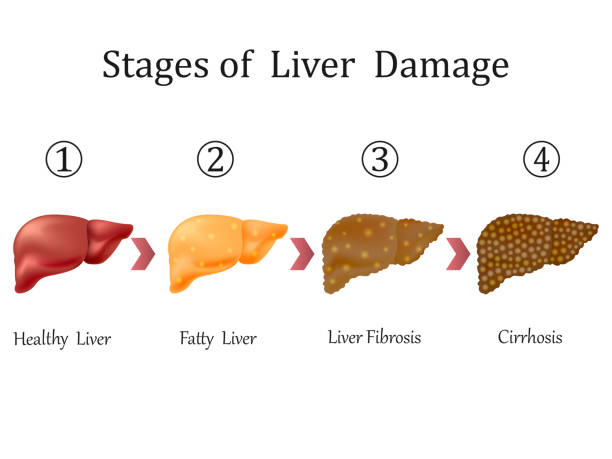okikiko.com – Although there are several different forms of hepatitis, the underlying cause remains the same: exposure to the Hepatitis Virus. In addition, some of the types of hepatitis are preventable through vaccination. According to a recent study by the WHO, 4.5 million people will die prematurely from Hepatitis by 2030, primarily in low and middle-income countries. The aim of the WHO’s global hepatitis strategy is to reduce the number of new infections and deaths by 90% by 2030.
This virus is a big cause of liver failure

The hepatitis virus can cause many different types of infections, but a common viral infection causes 80% of all cases of hepatitis. There are several strains of the virus, including hepatitis A and hepatitis B. Types B and C can be asymptomatic and will eventually progress to cirrhosis. While the virus can be caused by a number of other diseases, it is a leading cause of liver failure and is responsible for millions of cases each year.
In the past, there were only a few different types of hepatitis. Currently, there are seven types of hepatitis viruses. Types A and C are spread by blood and through the fecal-oral route, while types D and G are transmitted through sexual contact. Because of the widespread spread of hepatitis, there are many ways to contract hepatitis.
Hepatitis A treatment is usually limited to bed rest and supportive care

Symptoms of hepatitis A tend to come on within 15 to 45 days of exposure, and in some cases, there are no symptoms at all. Treatment of hepatitis A is usually limited to bed rest and supportive care. The risk of developing chronic hepatitis is low, however, and it is possible to prevent chronic hepatitis through passive immunization. In some cases, passive immunization from persons exposed to the Hepatitis Virus is an effective treatment.
Acute and chronic hepatitis is the most common form of viral hepatitis. Viruses of this type can lead to cirrhosis, liver cancer, and other serious illnesses. However, if the infection is left untreated, it can lead to death or long-term disability. While viral hepatitis is very treatable, it’s important to recognize the type of hepatitis virus that infects the liver.
The CDC has published guidelines to identify chronic and acute HAV infection

Most cases of HAV are acute and rarely chronic. Symptoms vary from a few weeks to months and can develop into fatal liver failure. It can be spread through the food or water you eat, or through infected sex. Some people may even contract HAV through the use of sex toys. If you have chronic HAV, it’s important to get tested for it. The CDC has published a guideline for identifying chronic and acute HAV infections.
The prevalence of HBV infection varies, largely depending on the route of transmission. Despite the fact that the disease is curable, one in 10 patients becomes a carrier of the virus and may pass it on to others. Those who become chronic carriers of HBV are at 100-fold higher risk of developing liver cancer. These are just some of the symptoms of chronic HBV infection. If you develop any of these complications, it’s best to seek medical help immediately.
In the early stages, some people may experience nausea, mild fever, and muscle aches

The symptoms of chronic HBV infection can range from asymptomatic to life-threatening. About one-third of infected individuals do not experience symptoms, although some may experience some. In the early stages, some people may experience nausea, mild fever, and muscle aches. Other symptoms include fatigue, a loss of appetite, and abdominal pain. Later on, some people may experience clay-colored stools or dark coffee-colored urine.
Vaccination is necessary to protect against the virus. Vaccination is the only way to prevent the spread of HBV. Vaccines are available in the United States. While the HBV vaccine is not universally effective, there are several ways to get vaccinated against it. Some people are at risk of developing it if they are infected with HBV. There are two main classification systems for HBV, and each of them has different serological subtypes.
Antiviral medications are available to treat chronic HCV infection

Chronic HCV infection results in liver damage and is caused by blood-borne infection. Antiviral drugs are available to treat chronic HCV infection. Some people who are afflicted with HBV also develop HDV, a satellite virus. There is a vaccination for HDV available for those who have HBV. However, this vaccine is not recommended for people who have chronic HCV. Infection with HBV can result in cirrhosis, which is life-threatening.
Viral hepatitis is an inflammation of the liver caused by various viruses. These include the Epstein-Barr virus, the yellow fever virus, and the herpes simplex virus. While most of these viruses do not attack the liver, specific viruses are responsible for causing viral hepatitis. Half of all cases of hepatitis in humans are caused by a viral infection. To learn more about the disease, please visit the website below.


